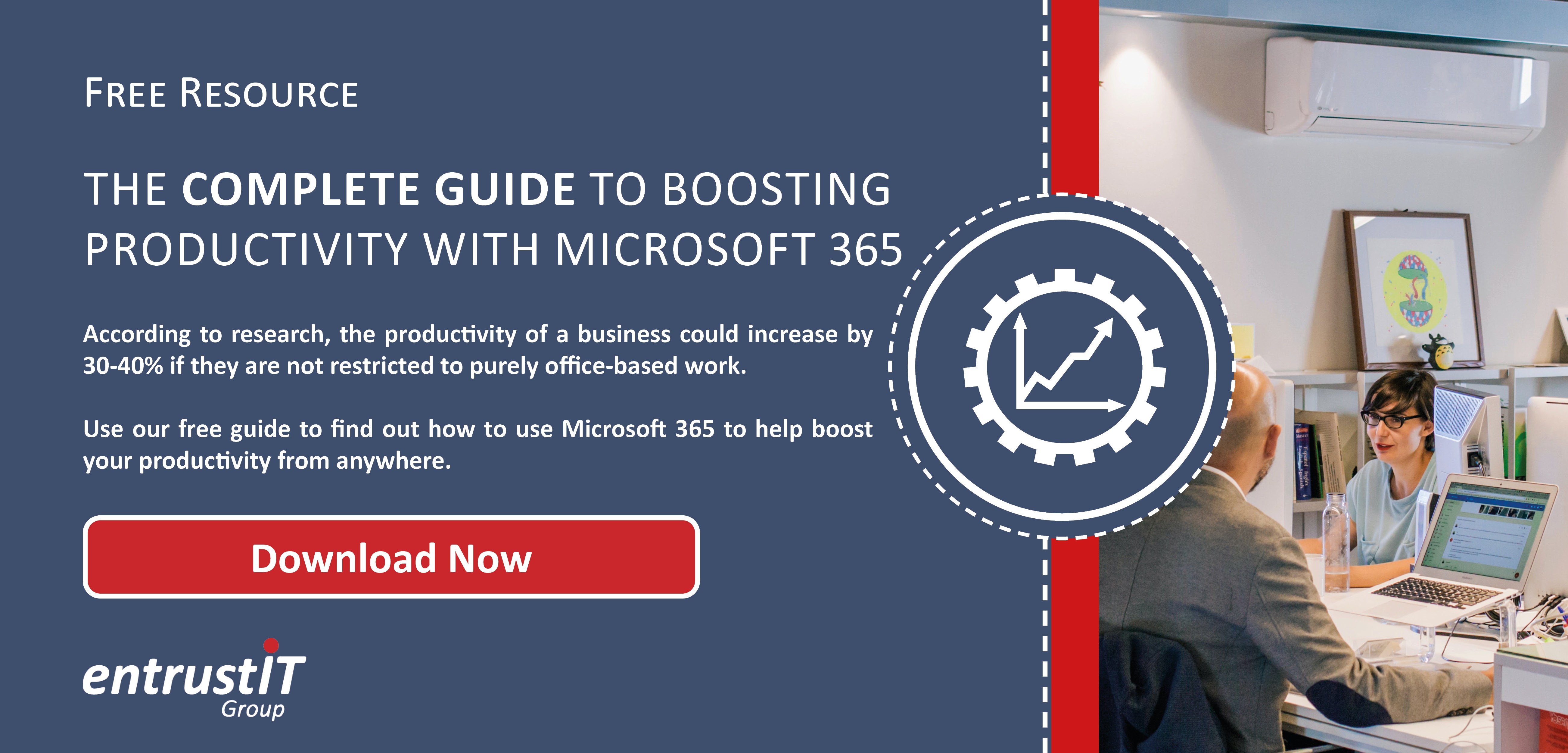
7 tips to help you be more productive at work

We all have a work routine. We all aim to get as much done in our work day as possible. However, A report from Fellowes has shown that 30% of UK office workers have admitted to only completing 1-4 tasks every day. We all have unproductive days, but are there any practical measures you can take to improve our productivity (and therefore satisfaction) at work?
You will complete more tasks, your boss will love you, you may even get that promotion you have been craving. Moreover, you will feel truly satisfied with your work.
Many people often think productivity is how many things you can get done in a day, however this couldn’t be more wrong. Productivity is an assessment or measure of the efficiency of a worker or group of workers completing tasks. How to be productive differs depending on who you are and results from a mix of aspects such as your motivation, training or work environment. It may be totally natural to you or you may need to come up with exercises and good habits to efficiently get work done.
These 7 tips may help you to be more productive at work but will also impact your everyday life, allowing you to be more productive in both areas. There has been significant evidence that supports the link between wellbeing at work and productivity with physical health and mental wellbeing.
Take advantage of your commute

Starting off your morning by being productive can put you in the right frame of mind for the rest of the day and making use of this uninterrupted time to get tasks done could be very beneficial. Not only this, but using the time to reflect is important. Nearly four million people in the UK spend two hours travelling to and from the office (equivalent to 38 working days a year!).
So, how do you take advantage of your commute? If you are able too, working offline is a great way to take advantage as it allows you to focus on pieces of work that you struggle to get done at work without the ‘disruption’ of the office. For example, reviewing reports or reading agendas. If you drive or get a busy tube to work this may not be an option. You could use this time to increase your knowledge by listening to podcasts, for example on the BBC or TedTalks.
Different ways to take advantage work differently for everyone so it’s important to find what works for you.
Have the right tools and equipment
Office equipment and tools play a major role in the modern workplace, allowing employees to work productively and complete tasks efficiently. Technology is continually being developed to help you work smarter - not harder. It is important to find which tools are right for your organisation and take advantage of the benefits. A good example is Microsoft Teams, a collaboration app of Microsoft 365 that combines calls/chat, attachments, notes and meetings. It allows your teams to work from wherever, whenever by allowing them to co-author and share files with Office 365 apps such as Word or PowerPoint.
Design a plan and set the RIGHT goals

The importance of setting the right goals is something many workers don’t take into consideration. Setting the right goals can be done by making sure you use SMART goals. SMART goals allow you to have a deadline as well clarity so that you can efficiently get tasks done. However, forming these SMART goals don’t happen without motivation and a plan of how you are going to achieve the goals. A plan is essential and doesn’t need to take more than 10 minutes. Spending a few minutes planning your day the evening before will help you to arrive at work with a clear path for the day and will rid your mind of unnecessary clutter.
Work flexibly
With the latest technologies, employees are being allowed to work at times most productive to them. The common 9-5 shift is proving not to work for an increasing amount of people and it has been predicted that by 2020, 30 percent of workers will spend much of their time working from home.
Are you a morning person? Or do you work better in the evenings? Ask your boss for flexible working where it is practical.
In some cases this may not be possible, so it’s about making use of your time whilst at work, thinking about what your most productive hours of the day are and using them to your advantage.
Improve workspace conditions
Positive, attractive and organised. These are all words that should come to mind when thinking about your workspace conditions and if they don’t then this could be a key point to increasing your productivity at work!
On a personal level, take a look at your desk surroundings and think of the word POSITIVE, does it inspire you to positively complete tasks? Next think of the word ATTRACTIVE, does it look good? Will it impact you to complete tasks that make you feel good? And finally, ORGANISED, are you able to easily find that missing document for the task you need to compete?
Your workspace conditions also include the atmosphere and people around you. If you are business owner, think about the feel of your office, whether your team work well together and how these could be improved.
By improving the conditions it means that the environment you are working can become more liveable, something that has been proven to help with productivity.
Take regular breaks

Not taking regular breaks may lead you to believe that you are getting more done but scientists say it runs you down and causes lack of motivation. Taking regular breaks boosts our concentration, creativity, moods and of course our productivity! Try taking a walk around the office, have a chat with a colleague or have a snack. It is recommend by experts to take a short break every hour depending on the type of work you are doing so that you can make the most out of your day.
When thinking about taking regular breaks at work a good example is the ‘Pomodoro Technique’. It is a time management technique that uses a timer to break work down into intervals of 25 minutes with short breaks. A goal of the technique is to reduce the impact of internal and external interruptions.
Meetings
There are a few different things to consider when thinking about meetings and whether they are productive. Is the meeting necessary? Who needs to attend? Do I need to attend?
Research has shown that 15% of an organizations collective time is spent in meetings, which has increased since 2008. Unproductive meetings not only waste time but also waste money. Consider the purpose of the meeting and work with your teams to establish whether it is necessary. Employees at Google are encouraged to think about meetings and whether they would be able to input anything to the meeting and if not, ask for the minutes of it.
Conclusion
We would all like to feel more productive and successful in our work lives. Sometimes it is important to examine the way we work and make adjustments where necessary. The tips in this blog will help you to feel focused on your tasks and will boost your efficiency
Ponder the fact that only 7% of workers feel productive during normal work hours. The traditional 9-5 is not the best way to work anymore - different people are more productive at different times. Modern cloud-based work tools unlock that productivity by allowing staff to work at a time that they are most focused. Using these tools to offer staff flexible working could turbocharge your productivity, and that of your company.
Subscribe here!
Recent Posts
Posts by tag
- technology (128)
- Security (113)
- IT Security (100)
- cyber security (100)
- Managed Service (74)
- modern technology (71)
- Microsoft 365 (69)
- IT support (68)
- Cloud (66)
- business (63)
- cyber attack (61)
- cloud computing (60)
- cloud it (56)
- cybersecurity (56)
- microsoft (56)
- workplace (55)
- Microsoft Teams (54)
- Working from home (51)
- IT (49)
- productivity (49)
- office (46)
- office 365 (45)
- Password Security (43)
- entrustit (42)
- employees (39)
- Uncategorised (38)
- Cyber (37)
- flexible work (37)
- Remote (33)
- efficiency (31)
- Hosted Workspace (30)
- hosted desktop (30)
- it support bournemouth (30)
- schools (29)
- cyber privacy (28)
- email security (28)
- independent schools (28)
- it support dorset (27)
- school ict (27)
- collaboration (26)
- computing (26)
- 2023 (25)
- it support hampshire (25)
- public cloud (24)
- it consultancy (22)
- IT audit (21)
- entrust (20)
- it consultancy bournemouth (20)
- it support southampton (20)
- msp (20)
- password (20)
- it consultancy dorset (19)
- it consultancy hampshire (19)
- passwords (19)
- ransomware (19)
- hosted applications (18)
- it support winchester (18)
- VoIP (17)
- cloud cctv (17)
- cloud voip (17)
- covid19 (17)
- hacking (17)
- it consultancy southampton (17)
- private cloud (17)
- IT costs (16)
- data (16)
- teamwork (16)
- Coronavirus (15)
- cctv (15)
- office 365 support (15)
- GDPR (14)
- hackers (14)
- internet (14)
- network (14)
- Protection (13)
- covid-19 (13)
- hack (13)
- internet safety (13)
- management (13)
- Hosted Desktop and Applications (12)
- Windows Virtual Desktop (12)
- hardware (12)
- hybrid cloud (12)
- vulnerabilities (12)
- windows 10 (12)
- 2020 (11)
- 2022 (11)
- Microsoft Planner (11)
- artificial intelligence (11)
- awards (11)
- data breach (11)
- phishing (11)
- AI (10)
- Hampshire (10)
- IT Director (10)
- digital (10)
- uk (10)
- windows (10)
- Backup (9)
- attack (9)
- bitwarden (9)
- eu (9)
- planning (9)
- software (9)
- telephony (9)
- usecure (9)
- communication (8)
- desk phone (8)
- education (8)
- outsource (8)
- partnership (8)
- staff (8)
- Bournemouth (7)
- Cyber Essentials (7)
- Dorset (7)
- Google (7)
- OneDrive (7)
- award winning (7)
- cloud storage (7)
- european union (7)
- infrastructure (7)
- legal (7)
- mobile (7)
- offsite backup (7)
- 2019 (6)
- AI CCTV (6)
- Access Management (6)
- Apple (6)
- Cyber Essentials Plus (6)
- ISO (6)
- News (6)
- Skype for Business (6)
- apps (6)
- architect (6)
- child protection (6)
- hacks (6)
- internet of things (6)
- iot (6)
- legal it (6)
- mobile phones (6)
- onsite backup (6)
- password manager (6)
- remote desktop service (6)
- resources (6)
- virus (6)
- 3d design desktop (5)
- Azure (5)
- Case Studies (5)
- Desktop (5)
- IP (5)
- Microsoft Copilot (5)
- Multi-Site Business (5)
- Risk assessment (5)
- Thames Valley Tech & Innovation Awards (5)
- The Business Magazine (5)
- Windows 7 (5)
- award (5)
- brexit (5)
- designer (5)
- ios (5)
- legacy (5)
- modern work (5)
- personal data (5)
- smartphone (5)
- sophos (5)
- surrey (5)
- united kingdom (5)
- website (5)
- Attacks (4)
- BYOD (4)
- ChatGPT (4)
- DR (4)
- DR planning (4)
- Facebook (4)
- Government (4)
- High Growth (4)
- MDR (4)
- Managed Service Provider of the Year (4)
- Microsoft Forms (4)
- SharePoint (4)
- Tech Growth (4)
- VPN (4)
- WannaCry (4)
- Zoom (4)
- budgets (4)
- computer performance (4)
- ddos (4)
- digital transformation (4)
- disaster recovery (4)
- law (4)
- meetings (4)
- online meetings (4)
- proactive (4)
- remote learning (4)
- sme (4)
- windows 11 (4)
- wireless internet bournemouth (4)
- wireless internet southampton (4)
- 2021 (3)
- 2024 (3)
- 5G (3)
- Dorset Chamber (3)
- EDR (3)
- Fourth Industrial Revolution (3)
- General (3)
- Google Drive (3)
- Hampshire Chamber (3)
- Help (3)
- Local (3)
- Microsoft Autopilot (3)
- NHS (3)
- New Forest (3)
- South Coast Tech & Innovation Awards (3)
- Tech Company of the Year (3)
- Thames Valley (3)
- Tiva (3)
- acquisition (3)
- big switch off (3)
- citrix (3)
- closed cloud (3)
- copilot (3)
- copilot pro (3)
- digital hub (3)
- guide (3)
- innovation (3)
- instagram (3)
- intelligence (3)
- london (3)
- smart buildings (3)
- storage (3)
- strategy (3)
- teaching (3)
- trump (3)
- twitter (3)
- video conferencing tools (3)
- zero touch deployment (3)
- zero-trust (3)
- 2016 (2)
- 2018 (2)
- BGL Company (2)
- Bourne Group (2)
- Burhill (2)
- Burhill Group (2)
- CAD (2)
- Environment (2)
- Firewall (2)
- GPT-4 (2)
- Gen Z (2)
- Hampshire Business Awards (2)
- ISBA (2)
- Macs (2)
- Mr Mulligans (2)
- PaaS (2)
- Privacy Shield (2)
- Sydenhams (2)
- Wifi (2)
- XDR (2)
- afc bournemouth (2)
- afcb (2)
- android (2)
- b2b (2)
- bcs (2)
- berkshire (2)
- blockchain (2)
- broadband (2)
- camcloud (2)
- cryptocurrency (2)
- dark web (2)
- downtime (2)
- dropbox (2)
- eagle eye networks (2)
- east grinstead (2)
- exhibition (2)
- farnham (2)
- finalist (2)
- legalex (2)
- machine learning (2)
- macos (2)
- organisation (2)
- paypal (2)
- predictions (2)
- president (2)
- reading (2)
- serval systems (2)
- smart sensors (2)
- solent (2)
- us (2)
- utility management (2)
- 1998 (1)
- 2026 (1)
- AMD (1)
- ARM (1)
- Abbey Hill (1)
- Aldwickbury Park (1)
- BBC (1)
- BUNKERS! (1)
- Bedford (1)
- Bedfordshire (1)
- Birchwood Park (1)
- Burnout (1)
- CEO (1)
- Central South Business Awards (1)
- Cloud VMS (1)
- Cloudtango (1)
- Comms Dealer (1)
- East Midlands (1)
- Endpoint 100 (1)
- Go Integrator (1)
- Growth 100 (1)
- Harvey Jones Kitchens (1)
- Hoebridge (1)
- Hospitality (1)
- Ignite 2018 (1)
- Ignite 2020 (1)
- Insider (1)
- Intune (1)
- Jeff Dodd (1)
- LLM (1)
- Leaders (1)
- Loop (1)
- M&A (1)
- MFA (1)
- MPLS (1)
- MSP Select 2024 (1)
- Market (1)
- May (1)
- Multi Factor Authentication (1)
- MyAnalytics (1)
- Ninja Warrior UK (1)
- PBX (1)
- PM (1)
- Power BI (1)
- Ramsdale Park (1)
- Redbourn (1)
- Regulation (1)
- Reid Steel (1)
- SD-WAN (1)
- Surrey Business Awards (1)
- Thornbury (1)
- WCry (1)
- WannaCrypt (1)
- Windows Autopilot (1)
- Wycombe Heights (1)
- ashley madison (1)
- bandwidth (1)
- battersea (1)
- beach (1)
- big data (1)
- black friday (1)
- bloatware (1)
- brand (1)
- builders merchant (1)
- business growth (1)
- business process audit (1)
- cambridge analytica (1)
- canada (1)
- cia (1)
- clinton (1)
- cnn (1)
- co op (1)
- compliance (1)
- connectivity (1)
- copyright (1)
- crime (1)
- cyber monday (1)
- cyber resilience act (1)
- dean drako (1)
- defence (1)
- dkim (1)
- dmarc (1)
- dns (1)
- donald (1)
- dyn (1)
- election (1)
- enterprise (1)
- epos (1)
- equality (1)
- executive order (1)
- facial recognition (1)
- fax (1)
- football (1)
- gchq (1)
- grinstead (1)
- hiring (1)
- intel (1)
- intercept x (1)
- interview (1)
- josh widdicombe (1)
- knights of old (1)
- landmarks (1)
- learning (1)
- legal technology forum (1)
- leisure (1)
- meltdown (1)
- millennials (1)
- mimecast (1)
- mirai (1)
- no-deal (1)
- number plate detection (1)
- onsite (1)
- outsourcing (1)
- paper (1)
- patisserie valerie (1)
- performance reviews (1)
- pound (1)
- premier league (1)
- private equity (1)
- procrastination (1)
- qualys (1)
- recruitment (1)
- research (1)
- retail (1)
- roundtable (1)
- samsic (1)
- sharefile (1)
- smishing (1)
- snowden (1)
- solent business awards (1)
- solentBA (1)
- spectre (1)
- spf (1)
- sterling (1)
- storm (1)
- talktalk (1)
- trumppresident (1)
- ukitawards (1)
- united states (1)
- usa (1)
- vault 7 (1)
- vitality stadium (1)
- vulnerability scanning (1)
- whatsapp (1)
- white (1)
- white house (1)
- wikileaks (1)
- women in business (1)
- xiongmai (1)
- year (1)

